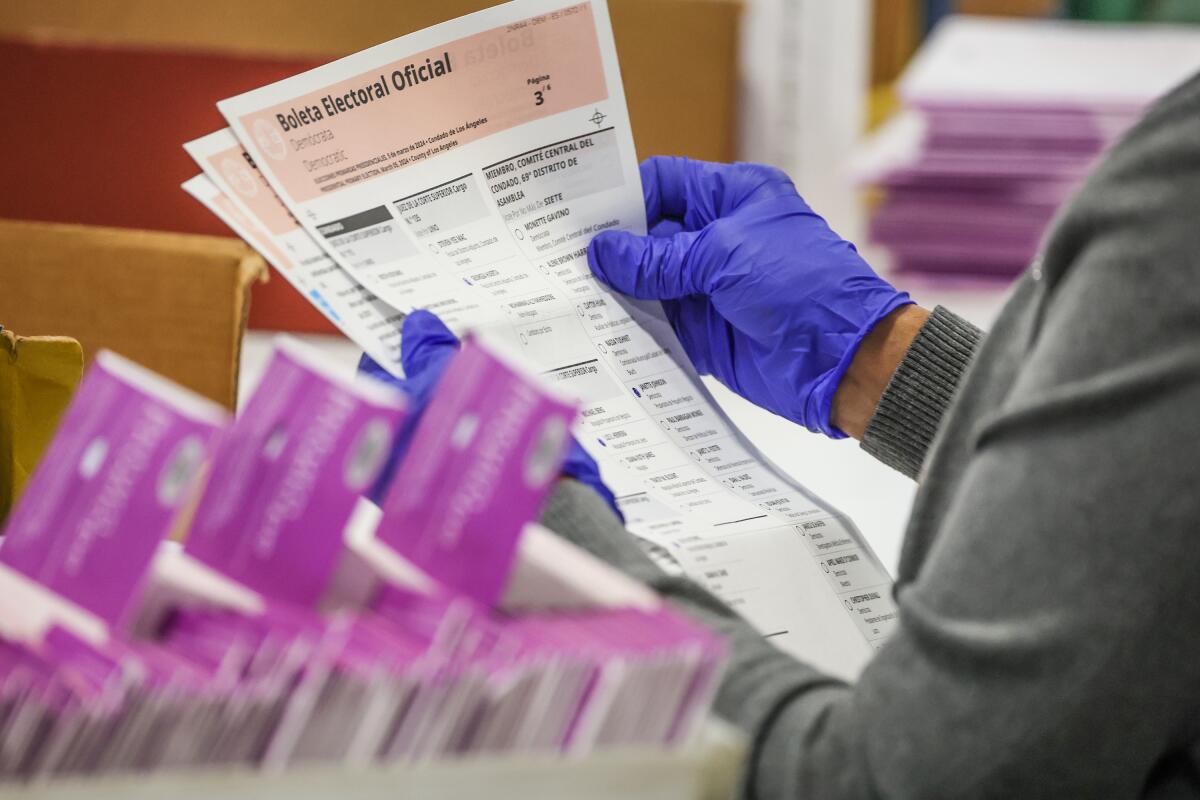SACRAMENTOAccording to a recent poll, the clear majority of California voters favor making ballots more accessible to those who speak limited English, as this would probably boost voter turnout.
In order to gauge voter mood in a state where over 25% of the population is foreign-born, the UC Berkeley Institute of Governmental Studies released a poll on Monday. The survey was done in five different languages: English, Spanish, Chinese, Korean, and Vietnamese.
About 70% of California’s registered voters agreed that ballots should be translated into their preferred language for eligible voters who speak little English, according to a survey done by the charity Evelyn and Walter Haas Jr. Fund. All racial and ethnic groupings, as well as Democrats and independent voters, showed significant support. Republicans differed greatly.
According to political scientist Eric Schickler, co-director of the Institute of Governmental Studies, “I think there’s a lot of debate and struggle over how inclusive a democracy we’re going to be and a lot of controversy over immigration, immigrant rights, and immigrant inclusion in the country as a whole.” Just considering the inclusion of many groups that feel completely American and are permitted to feel that way within our political system is pertinent.
According to the most recent estimates, over 3 million Californian voters self-identify as limited-English competent, according to Schickler and others. Just about 23 million Californians were registered to vote as of February.
California must offer multilingual voting assistance to Spanish speakers in accordance with both state and federal law. Voting materials must be available in at least one language other than English or Spanish in nine counties: Alameda, Contra Costa, Los Angeles, Orange, Sacramento, San Diego, San Francisco, San Mateo, and Santa Clara.
In counties or precincts where the state has determined that at least 3% of the voting-age population are members of a single-language minority and do not understand English well enough to vote without assistance, translated sample ballots and other assistance must also be made available in Spanish or other languages.
According to the Berkeley survey, 72% of respondents who expressed no party preference and 82% of Democrats agreed that ballot materials should be translated for voters who speak limited English. 42% of Republicans opposed delivering the translated ballots, compared to 45% who supported it.
The poll also found that the majority of California voters supported a policy recently introduced in the state legislature that would have provided translated copies of all voting materials to all limited-English-speaking communities in a county that meet a certain threshold.
Sen. Sabrina Cervantes (D-Riverside) introduced legislation to that effect, SB 266; however, it was not approved by the Senate Appropriations Committee. In 2024, AB 884, a more comprehensive law to provide access to translated ballots and materials, passed the Legislature but was vetoed by Governor Gavin Newsom. Although he was in favor of increasing ballot access, the governor said that the law would have cost tens of millions of dollars that were not covered by the budget.
In a state with such a diverse electorate and a reputation for complicated state and local ballot measures, it is imperative that voters with limited English proficiency receive translated ballots, according to Rosalind Gold of the National Association of Latino Elected and Appointed Officials Educational Fund.
According to Gold, it might be difficult to understand the explanation of a ballot item and what it signifies, even for highly educated and native English speakers.
The official ballots themselves, whether for Californians who vote at polling places or by mail, should be offered in a voter’s preferred language, she said, adding that translating sample ballots and other election materials is insufficient.
According to Gold, it is challenging to essentially switch back and forth between the ballot on which you will be marking your selections and a sample ballot or a facsimile ballot that is in your mother tongue. Voting directly on a ballot in a language they are more comfortable with just demystifies the entire process.
According to the Berkeley study, 87% of limited-English speakers who did not have access to or were not sure if they were given translated election materials stated that they would be more inclined to cast a ballot in their preferred language in future elections. Voting would be easier for them if they received those translated ballots, according to a similar percentage.
From June 2–6, 6,474 California registered voters participated in the survey.










